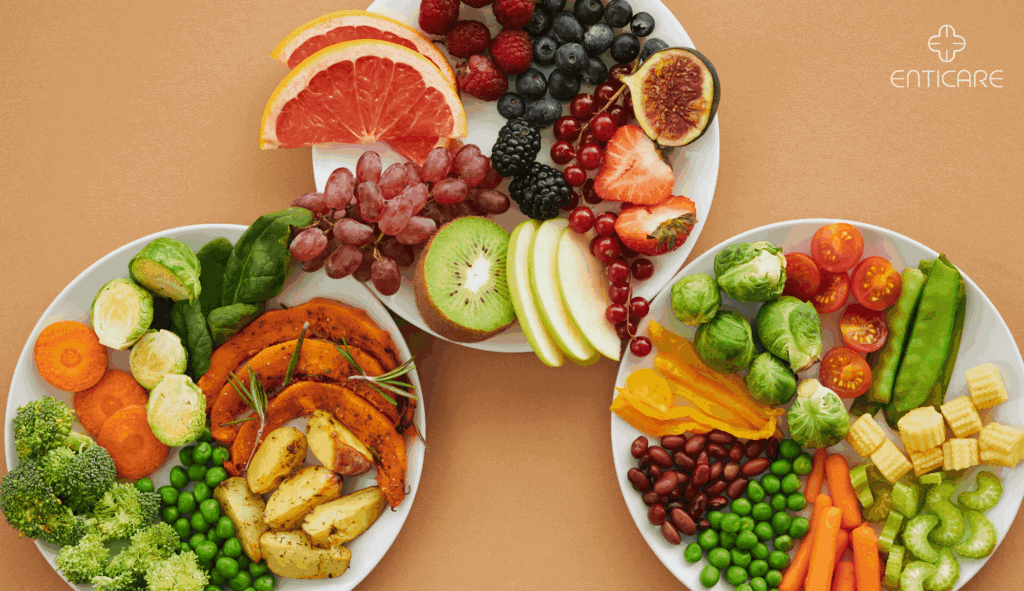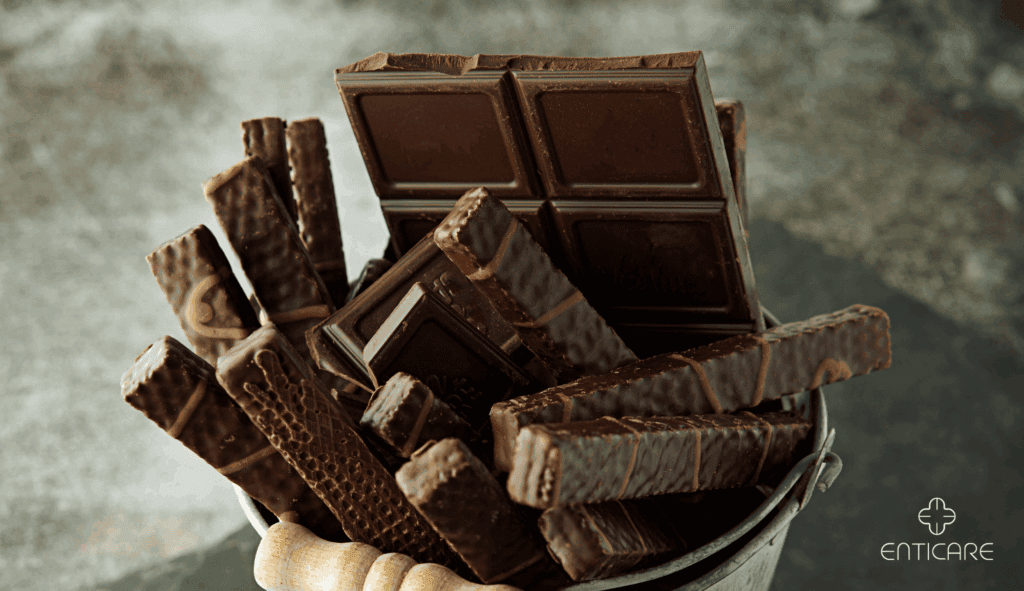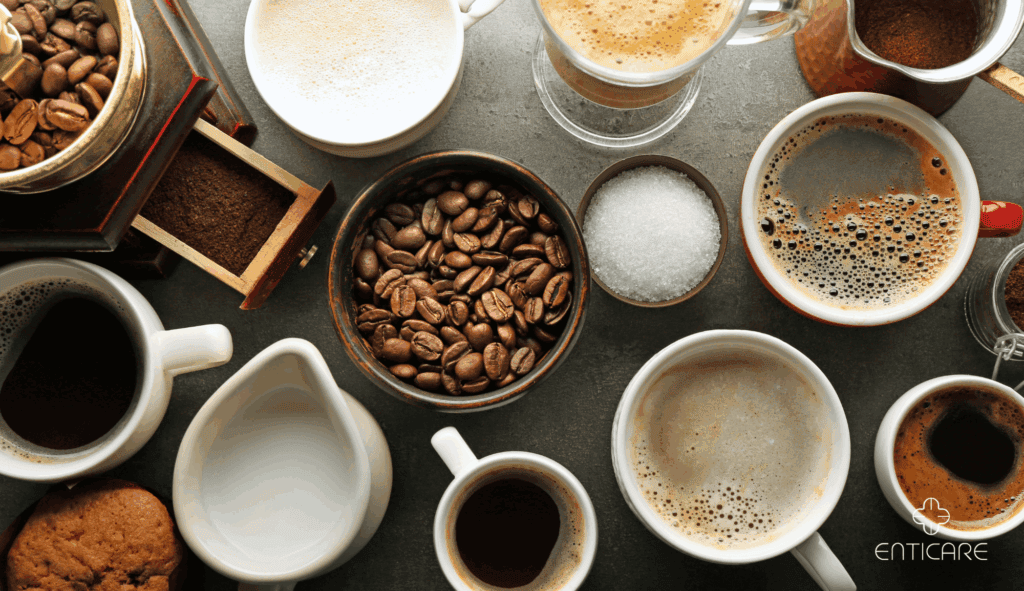Hearing loss affects millions of people worldwide, but did you know that the right foods can play a vital role in maintaining healthy hearing? What we eat impacts our overall well-being, including the delicate structures inside our ears, and can lead to improved hearing. Incorporating nutrient-rich foods into your diet helps protect your hearing, supports ear health, and reduces the risk of hearing loss.

Understanding the Connection Between Diet and Hearing Health
Your ears are complex organs that rely on a constant supply of nutrients to function properly. Certain vitamins, minerals, and antioxidants protect your hearing by supporting the blood flow to the inner ear and maintaining the health of the inner ear’s hair cells, preventing inflammation, and combating oxidative stress.
Why Food Matters for Hearing Health
Good nutrition fuels the cells in your ears, especially those responsible for detecting sound and transmitting it to the brain. Foods high in essential vitamins and minerals can protect your ears from damage caused by noise, aging, and oxidative stress, and help prevent hearing loss and ear infections. On the other hand, a poor diet can contribute to hearing loss over time.
Oxidative Stress and Hearing Loss
Oxidative stress occurs when there is an imbalance between free radicals and antioxidants in the body, leading to cell damage. The hair cells in your inner ear are particularly vulnerable to this type of damage, and once destroyed, they do not regenerate. Antioxidants in certain foods can help neutralize free radicals and protect these delicate cells.
Blood Flow and Ear Health
The inner ear relies on proper blood flow to receive the oxygen and nutrients it needs to function. Nutrients like potassium and magnesium help maintain healthy blood flow to the cochlea, the part of the ear responsible for translating sound into electrical signals that the brain interprets as hearing.

Foods Rich in Antioxidants to Support Ear Health
Antioxidants are key in protecting your ears from damage caused by oxidative stress and inflammation. They help combat free radicals, which can harm the cells in your inner ear and lead to hearing loss.
Dark Chocolate
Dark chocolate contains high levels of antioxidants, particularly flavonoids, which support healthy blood circulation. Improved circulation ensures that your ears get a steady supply of oxygen and nutrients, reducing the risk of damage to the sensitive cells within the ear and leading to improved hearing.
Berries
Berries like blueberries, strawberries, and raspberries are packed with antioxidants like vitamin C and flavonoids. These compounds help prevent free radical damage, reducing the risk of age-related hearing loss. Studies have shown that diets rich in antioxidants can slow down hearing decline.
Green Leafy Vegetables
Spinach, kale, and other dark leafy greens are excellent sources of antioxidants and vitamins like vitamin E. Vitamin E helps protect cells from oxidative damage and improves circulation to the ears. Leafy greens also contain folate, which plays a role in reducing the risk of age-related hearing loss.
The Role of Vitamins in Preventing Hearing Loss
Certain vitamins contribute to overall ear health by supporting cell repair, reducing inflammation, and preventing hearing loss. Including these vitamins in your diet helps preserve hearing as you age.
Vitamin A
Vitamin A supports the health of the inner ear’s membranes and enhances immune function, which helps prevent infections that could impair hearing and protect the inner ear’s hair cells. Foods rich in vitamin A include carrots, sweet potatoes, and bell peppers.
Vitamin C
Vitamin C is a powerful antioxidant that strengthens your immune system and reduces inflammation in the body, including in the ear. It helps prevent ear infections and oxidative stress that could lead to hearing damage, reducing the risk of hearing loss and ear infections. Citrus fruits, broccoli, and kiwis are excellent sources of vitamin C.
Vitamin E
Vitamin E improves blood flow by thinning the blood, allowing more oxygen to reach the ear’s sensory cells. A diet rich in nuts, seeds, and vegetable oils provides the vitamin E your body needs to maintain healthy hearing.
Minerals That Help Protect Hearing
In addition to vitamins, certain minerals play an essential role in keeping your ears functioning at their best. These minerals contribute to blood circulation, protect against ear infections, and support the health of inner ear cells.
Magnesium
Magnesium is known for its ability to protect against noise-induced hearing loss. It acts as a natural defense against damage to the inner ear caused by loud noises and helps maintain the health of the inner ear’s hair cells. Magnesium also helps maintain proper blood flow to the ears. You can find magnesium in foods like spinach, bananas, and avocados.
Potassium
Potassium helps regulate the fluid in the inner ear, which is vital for hearing. As we age, potassium levels tend to decrease, contributing to hearing loss. Including potassium-rich foods like bananas, tomatoes, and sweet potatoes can help maintain proper ear function.
Zinc
Zinc supports the immune system and helps prevent ear infections. It also plays a role in protecting your ears from age-related hearing loss. Foods like oysters, beef, and pumpkin seeds are rich in zinc, providing the necessary protection to your hearing.

Foods to Avoid for Healthy Hearing
While many foods support ear health, some can contribute to hearing loss if consumed in excess. High levels of sodium, caffeine, and processed sugars can negatively impact hearing and overall health.
Excessive Sodium
High-sodium diets can increase blood pressure, which reduces the blood flow to the ears. This restricted blood flow can damage the delicate cells in the inner ear, leading to hearing problems. Reducing your intake of salty foods, such as processed snacks and fast food, can help protect your hearing.
Caffeine
While moderate caffeine consumption is fine for most people, excessive caffeine intake can lead to constricted blood vessels, reducing circulation to the inner ear. This can worsen symptoms like tinnitus (ringing in the ears) and contribute to hearing loss over time. Limiting coffee, energy drinks, and soda can help maintain healthy hearing.
Processed Sugars
High levels of processed sugars can lead to diabetes, which is linked to an increased risk of hearing loss. Fluctuations in blood sugar levels can damage the blood vessels in the ear, affecting your ability to hear. Reducing your intake of sugary snacks, pastries, and sodas helps maintain stable blood sugar levels and supports your health.
Take Action to Protect Your Hearing Health
Preventing hearing loss involves more than avoiding loud noises—it starts with the foods you eat. By incorporating antioxidant-rich fruits, vegetables, and minerals into your diet, you can support your ear health and protect against age-related hearing loss. Make the decision today to take care of your hearing through nutrition and lifestyle changes.
If you’re concerned about your hearing or want to learn more about protecting your ear health, schedule an appointment with our specialists. Our team can help you understand your hearing health and offer personalized advice on prevention and treatment.
Click here to book your appointment today and take the first step toward better hearing.
Resources:
- Antioxidants and hearing: link
- Noise-induced hearing loss and magnesium: link
- Vitamin-rich diets for hearing loss prevention: link
- Osteoporosis and its link to hearing loss

